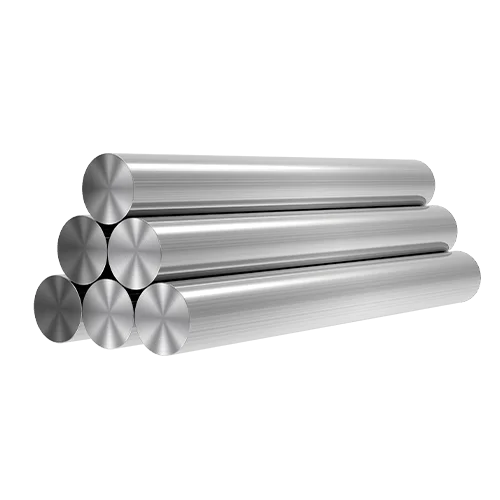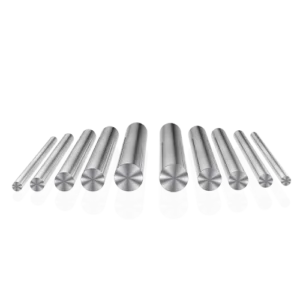Introduction

Stainless steel is a versatile material renowned for its corrosion resistance, durability, and aesthetic appeal. Among its various grades, 403 stainless steel stands out for its unique combination of properties, making it suitable for a wide range of applications. In this blog post, we delve into the strengths of 403 stainless steel and explore its diverse uses in different industries.
Understanding 403 Stainless Steel
403 stainless steel belongs to the ferritic stainless steel family, characterized by its high chromium content and low carbon content. This composition offers excellent corrosion resistance, particularly in environments with mild chemical exposure or atmospheric conditions. Additionally, 403 steel exhibits good strength and hardness, making it suitable for applications requiring robust mechanical properties.
Applications of 403 Stainless Steel
Due to its unique combination of properties, 403 steel finds applications in various industries, including:
- Automotive Industry: Used in exhaust systems, catalytic converters, and other components requiring corrosion resistance and durability.
- Industrial Equipment: Employed in machinery parts, heat exchangers, and pressure vessels due to its strength and heat resistance.
- Construction: Utilized in architectural elements, such as handrails and decorative panels, where corrosion resistance is essential.
- Kitchenware: Found in kitchen appliances and utensils due to its resistance to food acids and staining.
- Medical Devices: Used in surgical instruments and medical equipment requiring sterilization and corrosion resistance.
Advantages and Limitations of 403 Stainless Steel
403 stainless steel possesses a unique blend of characteristics that make it a preferred choice for various applications. However, it’s essential to recognize both its strengths and limitations to utilize it effectively.
Advantages:
- Corrosion Resistance in Mild Environments: One of the primary advantages of 403 stainless steel is its resistance to corrosion in mild environments. It can withstand exposure to moisture, atmospheric conditions, and certain chemicals without undergoing significant degradation. This makes it suitable for applications where corrosion resistance is essential but exposure to harsh chemicals is minimal.
- Good Strength and Hardness: Another notable advantage is its good strength and hardness properties. 403 steel exhibits sufficient mechanical strength, making it suitable for structural components and load-bearing applications. Its hardness contributes to its durability and resistance to wear and abrasion, prolonging its service life in demanding environments.
- Suitable for Various Fabrication Processes: 403 steel is versatile in terms of fabrication processes. It can be easily formed, machined, welded, and fabricated using common techniques. This versatility allows manufacturers to produce a wide range of components and products with complex shapes and configurations, enhancing design flexibility.
Limitations:
- Limited Corrosion Resistance in Harsh Chemical Environments: Despite its corrosion resistance in mild environments, 403 steel exhibits limited resistance to harsh chemical environments. It may corrode or experience surface pitting when exposed to aggressive chemicals such as acids, alkalis, and chlorides. Therefore, it is not recommended for applications where prolonged exposure to corrosive substances is expected.
- Lower Toughness Compared to Some Other Stainless Steel Grades: While 403 steel offers good strength, its toughness is relatively lower compared to certain other stainless steel grades, particularly austenitic stainless steels. This lower toughness may impact its ability to withstand impact or shock loading, making it less suitable for applications requiring high ductility and impact resistance.
- Not Suitable for Applications Requiring High-Temperature Resistance: 403 steel has limitations in high-temperature applications. It may experience degradation in mechanical properties, such as reduced strength and hardness, when exposed to elevated temperatures for prolonged periods. Therefore, it is not recommended for applications where sustained high-temperature resistance is required.
Key Properties of 403 Stainless Steel

Here are some key properties of 403 stainless steel:
| Property | Description |
|---|---|
| Corrosion Resistance | Resistant to mild chemical exposure and atmospheric conditions. |
| Strength | Exhibits good strength and hardness. |
| Heat Resistance | Maintains mechanical properties at elevated temperatures. |
| Formability | Moderate formability for various fabrication processes. |
Conclusion
403 stainless steel is a versatile material with a unique set of properties that make it well-suited for a wide range of applications across different industries. Its corrosion resistance, strength, and formability make it a preferred choice for automotive, industrial, construction, kitchenware, and medical applications. By understanding its strengths and limitations, engineers and designers can harness the full potential of 403 steel in their projects.
FAQ
Q: Is 403 stainless steel magnetic?
A: Yes, like most ferritic stainless steels, 403 stainless steel is magnetic.
Q: Can 403 stainless steel be welded?
A: Yes, it can be welded using common welding techniques, although preheating and post-weld heat treatment may be necessary to minimize the risk of cracking.
Q: What is the maximum operating temperature for 403 stainless steel?
A: The maximum operating temperature for 403 stainless steel is typically around 760°C (1400°F), beyond which its mechanical properties may degrade.
Q: How does 403 stainless steel compare to other stainless steel grades?
A: Compared to austenitic stainless steels, such as 304 or 316, 403 stainless steel offers higher strength but lower corrosion resistance. It is best suited for applications where corrosion resistance is not the primary concern.
Q: Can 403 stainless steel be hardened?
A: Yes, it can be hardened through heat treatment processes such as annealing, quenching, and tempering to achieve desired mechanical properties.
